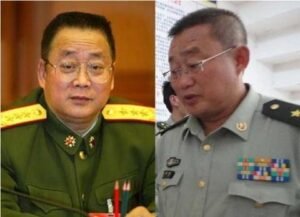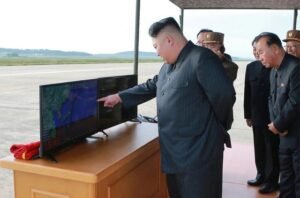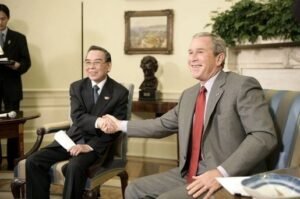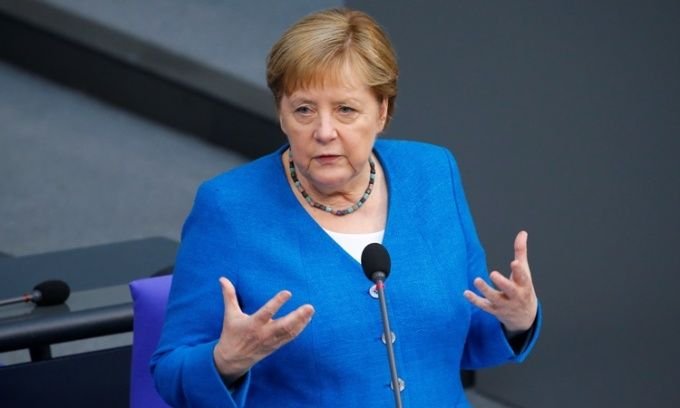
Europe looks for a leader to replace Merkel 3
During nearly 16 years of leading Germany, Prime Minister Angela Merkel has practically become the representative of Europe in the international arena and an important power `broker` of the European Union (EU).
When Merkel ends her term after the election, Germany will continue to maintain its enormous influence in the EU.
Her retreat into the background also creates an opportunity for other EU leaders to assert themselves and their vision for Europe for the first time in a decade.
German Chancellor Angela Merkel spoke before the House of Representatives in Berlin in June. Photo: Reuters.
Some notable names have appeared in the race.
But many analysts, politicians and diplomats agree that both of them are not really able to `fit into the shoes` of Prime Minister Merkel.
`Merkel’s departure from politics has created a leadership vacancy, a hole in the heart of Europe,` said Giovanni Orsiana, director of the School of State Administration at Luiss Guido Carli University in Rome, Italy.
There will be clear changes in the balance of power and other European leaders will have to step up to take on the role left by Prime Minister Merkel, according to a senior EU diplomat.
`It can’t be done by just one person, it’s the work of a group of people,` he said.
Merkel is not expected to leave office immediately after the election.
After that, whoever succeeds her among the three candidates, Armin Laschet from the German Christian Democratic Union party, Olaf Scholz from the German Social Democrats and Annalena Baerbock from the Green party, will need time to settle down as well.
If Britain is still an EU member, the `leader` role could completely be transferred to London.
Therefore, many people are heading towards Paris.
`The German election will be seen by France as an opportunity for them to re-establish their position. Whoever comes to power in Germany will have a weaker position than President Macron and thanks to that, France’s influence in Europe will
Macron has prepared for this moment.
Macron has spent years outlining his vision for Europe.
In 2017, after the German election, he gave a speech at Sorbonne University, arguing that the best response to the rise of nationalism was to acknowledge the EU’s shortcomings such as `being too weak,
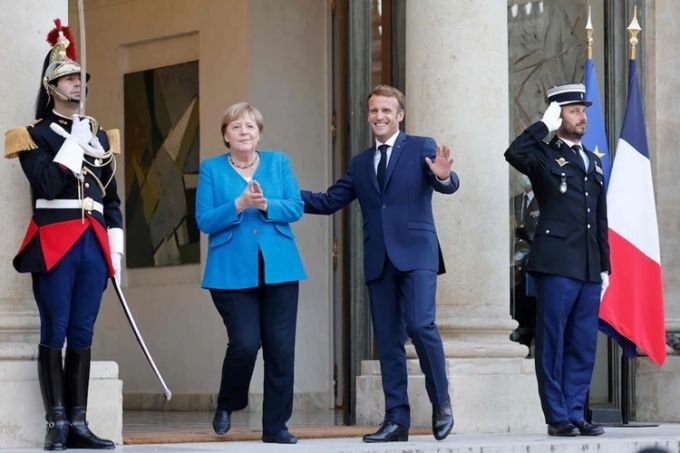
German Chancellor Merkel and French President Macron met at the Elysee Palace, Paris on September 16.
He has emphasized this topic many times.
The French President recently used the chaotic US withdrawal in Afghanistan and the controversial nuclear submarine agreement between the US, UK and Australia as evidence to reiterate his call for building a `strategic independence` position.
Other EU leaders have said they side with France in the row over the Australian submarine deal and are equally disappointed by developments in Afghanistan.
Macron’s role as Europe’s leader is likely to depend on the progress he makes after France in January took over the six-month rotating presidency of the Council of the European Union.
`Currently, Macron has the tools and opportunity to fill the gap left by Merkel,` said an EU official.
In July, Politico called French President Macron and Italian Prime Minister Draghi `the new power couple` of Europe.
`I think that in this new period, the leadership role can be assumed by the collective,` said Sandro Gozi, a veteran Italian politician who currently represents France in the European Parliament.
Initially, the EU may be jointly led by the leaders of France and Italy, but later, a three-legged situation will form with the participation of Germany, Gozi predicts.
Draghi has long been trying to take on a greater leadership role in the EU, according to observers.
In March, Draghi made headlines when he blocked the export of a batch of AstraZeneca vaccines from the EU, amid supply shortages in the bloc.
But Draghi’s leadership may be impacted by his country’s size and influence.
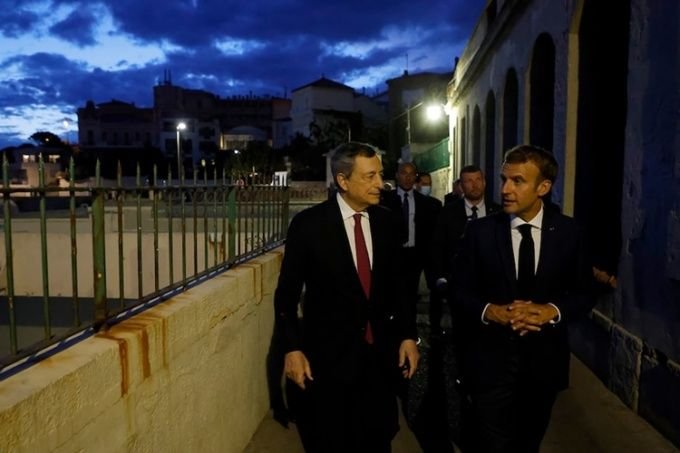
Italian Prime Minister Draghi (left) and French President Macron walk together before entering dinner in Marseille, France, September 2.
`The problem that has existed for a long time is not only who you are but also what you drive,` said Orsina from Luiss Guido Carli University.
Support for Chancellor Merkel remains strong across Europe.
